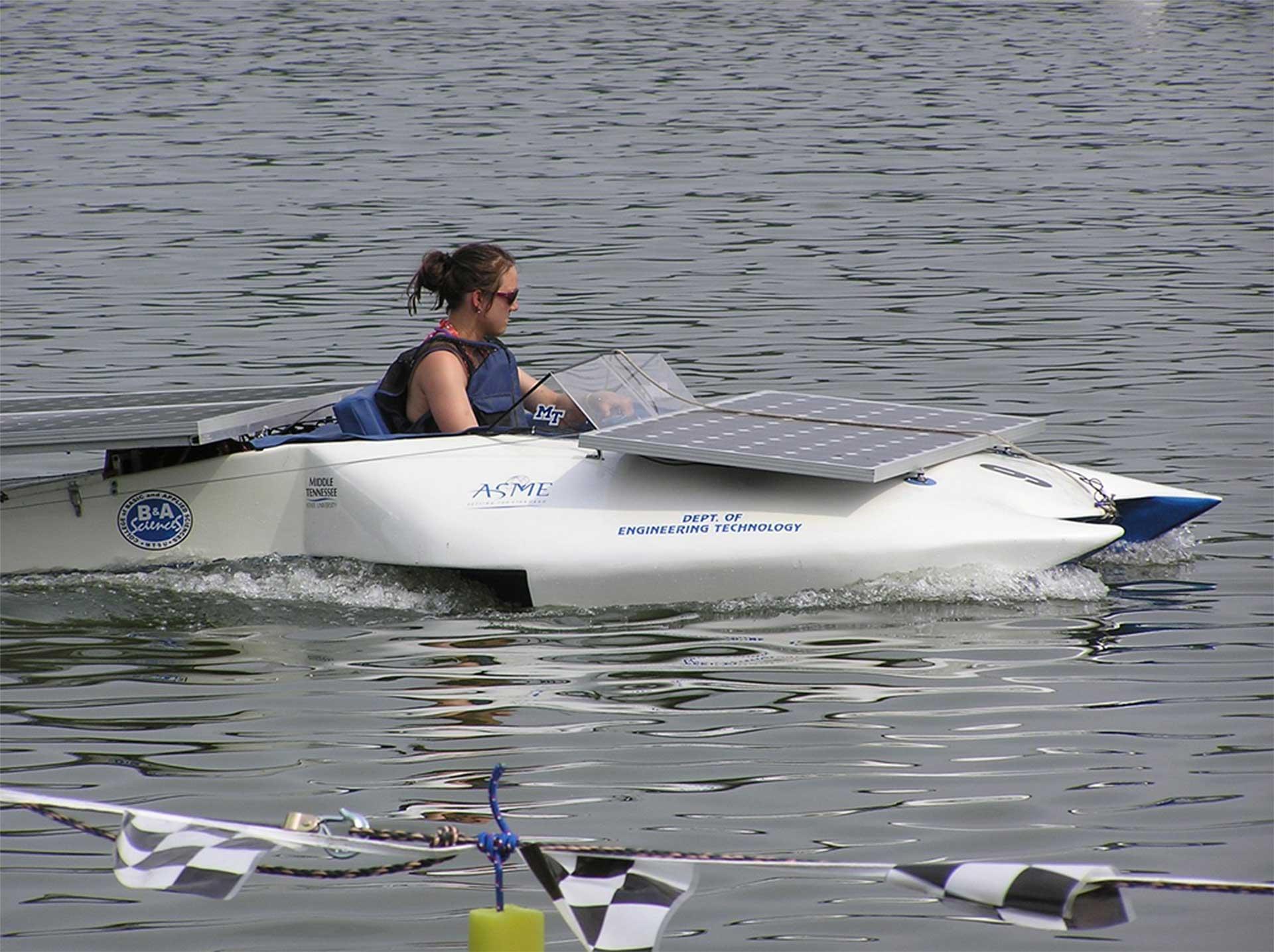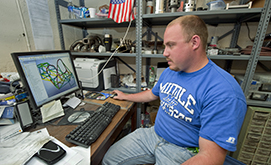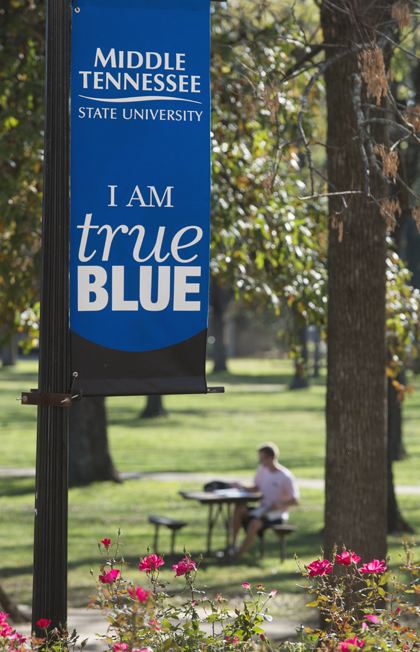
Engineering Technology
Get real-world exposure and develop industry connections. Great for design, development, and networking careers. ABET certified.
Engineering Technology, Computer Engineering Technology Concentration, B.S.
The Computer Engineering Technology Concentration is part of the Bachelor of Science in Engineering Technology offered through the College of Basic and Applied Science at MTSU.
When it comes to engineering technology, classroom discussion can only go so far in exposing students to the challenges posed by the real world. MTSU's Engineering Technology program excels at placing students in contact with industry professionals in a stimulating and encouraging environment in which to Graduates of the Computer Engineering Technology Program will pursue careers in the design, development, analysis, implementation, operation, optimization, and maintenance of electronic circuits, computer hardware, software, networking systems, and/or embedded computer systems. Employment opportunities exist in various fields including manufacturing, medical, aerospace, instrumentation and control, electrical power management, networking, and customer service sectors.
HIGHLIGHTS
- Degree certified by the Engineering Technology Accreditation Commission of ABET Required text for accreditation: The Computer Engineering Technology concentration is accredited by the Engineering Technology Accreditation Commission of ABET, Inc. https://www.abet.org, under the General Criteria and the Computer Engineering Technology Program Criteria.
- Extensive experience in advanced lab methodologies
- Graduates recruited by regional, national, and international employers
News Briefs

Come along for the ride!
Established in 2004, the Experimental Vehicles Program (EVP) currently comprises four different undergraduate research projects. From moonbuggies and solar boats to SAE Formula One and SAE Mini Baja racing, teams take part in national and even global competitions while gaining valuable experience on how to work in a collaborative environment. Although these projects are geared towards students in the Engineering Technology Department, any MTSU student with enthusiasm and a willingness to learn is welcome to join in on the competitions.

Building a career
The Robert E. and Georgianna West Russell Chair of Manufacturing Excellence is designed to promote quality interaction with local industry. Students are encouraged to benefit from the scheduled activities, seminars, and short courses sponsored by the Chair of Manufacturing Excellence. The chair is just one of the many ways by which the Engineering Technology department provides students with a career-oriented, hands-on education through nationally accredited programs.
News Briefs
Come along for the ride!

Established in 2004, the Experimental Vehicles Program (EVP) currently comprises four different undergraduate research projects. From moonbuggies and solar boats to SAE Formula One and SAE Mini Baja racing, teams take part in national and even global competitions while gaining valuable experience on how to work in a collaborative environment. Although these projects are geared towards students in the Engineering Technology Department, any MTSU student with enthusiasm and a willingness to learn is welcome to join in on the competitions.
Building a career

The Robert E. and Georgianna West Russell Chair of Manufacturing Excellence is designed to promote quality interaction with local industry. Students are encouraged to benefit from the scheduled activities, seminars, and short courses sponsored by the Chair of Manufacturing Excellence. The chair is just one of the many ways by which the Engineering Technology department provides students with a career-oriented, hands-on education through nationally accredited programs.
Related Media

While many engineering schools focus on the theoretical, MTSU's Engineering Technology program excels in providing hands-on experiences and skills that are immediately transferrable to the workforce. Examples include
- Applications engineer
- Energy applications manager
- Energy operations engineer
- Energy systems quality engineer
- Engineering technologist
- Field engineer
- Lighting shop technician
- Management trainee
- Power plant manager
- Professor
- Project manager
- Sales representative
- Senior technical associate
- Software engineer
Employers of MTSU alumni include
- Automation nth
- Bridgestone
- Calsonic Kansei
- Carrier
- EM-Tech
- FloStor Engineering, Inc.
- General Mills
- General Motors
- Mahle
- Nissan
- Schneider Electric
- Southeastern Technologies
- SW Manufacturing
- TVA
- USA ZAMA
- Vought Industries



When it comes to engineering technology, classroom discussion can only go so far in exposing students to the challenges posed by the real world. MTSU's Engineering Technology program excels at placing students in contact with industry professionals in a stimulating and encouraging environment in which to acquire and test the skills and knowledge they will need after college.

CONTACT US

Please fill in the form below and we will contact you very soon











